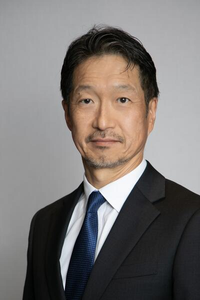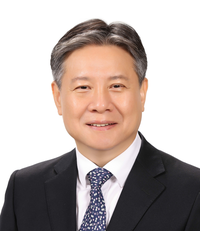AASLD/KASL: Innovative Ideas to Change Practice
Nov
08
2025
Convention Center: Room 201, Level 2
3:45 PM
- 4:45 PM
World Class Speakers
Description
Continuing the successful AASLD-KASL collaboration underway since 2023, this session highlights practice-changing innovations in hepatology from leading researchers in the U.S. and Korea. Topics include the application of artificial intelligence for non-invasive assessment of liver fibrosis in patients with MASLD, the use of speech pattern analysis as a digital biomarker for detecting hepatic encephalopathy, clinical data on autologous bone marrow-derived mesenchymal stem cell transplantation for liver cirrhosis, and AI-powered tools that synthesize clinical guidelines to support real-time decision-making. A panel discussion will follow to explore the clinical impact, implementation challenges, and global relevance of these emerging technologies.Journey Maps
Presentations
3:45 PM
- 3:50 PM
Nov
08
2025
Washington, D.C.
Welcome
W. Ray Kim, MD, FAASLD
, Moderator
Cirrhosis and Portal Hypertension
Global
3:50 PM
- 4:00 PM
Nov
08
2025
Washington, D.C.
AI-based Non-invasive Diagnosis of Liver Fibrosis in MASLD
Won Sohn
, Presenter
Cirrhosis and Portal Hypertension
Global
4:00 PM
- 4:10 PM
Nov
08
2025
Washington, D.C.
Diagnosis of Hepatic Encephalopathy by Speech Abnormalities
Patricia Bloom, MD
, Presenter
Cirrhosis and Portal Hypertension
Global
4:10 PM
- 4:20 PM
Nov
08
2025
Washington, D.C.
Stem Cell-based Regenerative Therapy for Liver Cirrhosis
Young Chang, MD, PhD.
, Presenter
Cirrhosis and Portal Hypertension
Global
4:20 PM
- 4:30 PM
Nov
08
2025
Washington, D.C.
Using AI to make Practice Recommendations Based on Guidelines
Renumathy Dhanasekaran, MD, PhD
, Presenter
Cirrhosis and Portal Hypertension
Global
4:30 PM
- 4:45 PM
Nov
08
2025
Washington, D.C.
Panel Discussion - All Presenters
YOUNG-SUK LIM, MD, PhD
, Moderator
Cirrhosis and Portal Hypertension
Global
Objectives
- Evaluate the application of artificial intelligence for non-invasive assessment and staging of liver fibrosis in patients with MASLD, including advancements in imaging and algorithmic modeling.
- Analyze speech pattern abnormalities as emerging digital biomarkers for hepatic encephalopathy and assess their diagnostic sensitivity and clinical utility.
- Review clinical evidence on the efficacy and safety of autologous bone marrow-derived mesenchymal stem cell transplantation in the treatment of liver cirrhosis.
- Apply AI-powered tools that synthesize hepatology clinical guidelines to support real-time, patient-specific decision-making in clinical practice.





